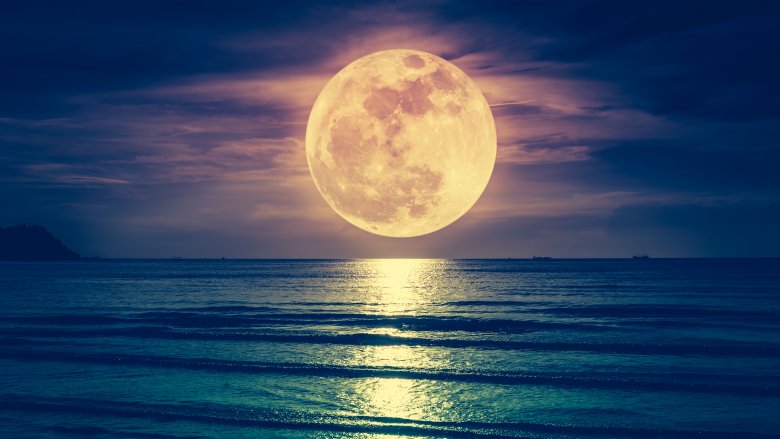What Would Happen If There Were No Moon?
The human race has an odd relationship with the battered, lonely space-bauble lazily circling our planet. It means many different things to our night-sky gazing species, from being a convenient source of romantic mood-lighting, to offering a glimmer of hope that a world made entirely of cheese may truly exist. We've even made computer games about the thing. But setting our love affair with Earth's largest natural satellite aside, what would happen if it weren't there?
The good news is, we wouldn't all be dead. Life on Earth has been the victim of several mass extinction events, but unless the moon actually explodes, its sudden disappearance would probably not be catastrophic. Life would, in all probability, still go on. But it would be very different, indeed.
Nights would be darker. Without the moon, Venus, which has an eerie glow, would be brightest object in the sky. According to Popular Science, this means the night sky would be significantly darker — verging on stygian blackness. This might seem trivial, but pitch black nights would have made humanity's long struggle to the top of the food chain much harder. In a study on nocturnal mammal behavior published in the Journal of Animal Ecology in 2014, researchers found that many mammals have evolved to be heavily reliant on the moon for hunting and foraging. Without moonlight, animals would likely have evolved very differently. It's reasonable to assume our species might have remained just another timid primate, shivering through the night as much larger, meaner beasts prowled just beyond the firelight.
Days would be much shorter, too. Since our moon solidified in Earth's orbit, it's acted as a giant gravitational braking mechanism. Over millions of years, it's gradually slowed Earth's rotation to the sedate 24 hour cycle we live with today. Inside Science estimates that, without the moon, a day would last between 6 and 12 hours. This would likely have profound implications for evolution. For example, plant life would likely have developed very different processes for photosynthesis.
Tidal forces would be about a third of what they are now. Coastlines of every landmass on Earth would likely be unrecognizable, with repercussions throughout whole coastal ecosystems. Entire classes of coastal dwelling lifeforms would evolve differently. As covered by Popular Science, according to Dr. Jack Burns — a professor in astrophysics and planetary sciences with the University of Colorado — the sluggish tidal flow would also affect global weather patterns. Tidal oceanic flows moderate temperature fluctuations. The moon's absence would therefore mean furnace-hot summers and frigidly cold winters across the whole planet's surface.
So there's good news and bad news. If there were no moon, there'd probably still be life on Earth. However, humanity's fate mightn't look quite so peachy. It's difficult to speculate what we'd be like as a species had the moon never existed in the first place. But there's a good chance we wouldn't have had the luxury of regretting the absence of an evening's decent mood-lighting. And we'd certainly never know what's amore.
